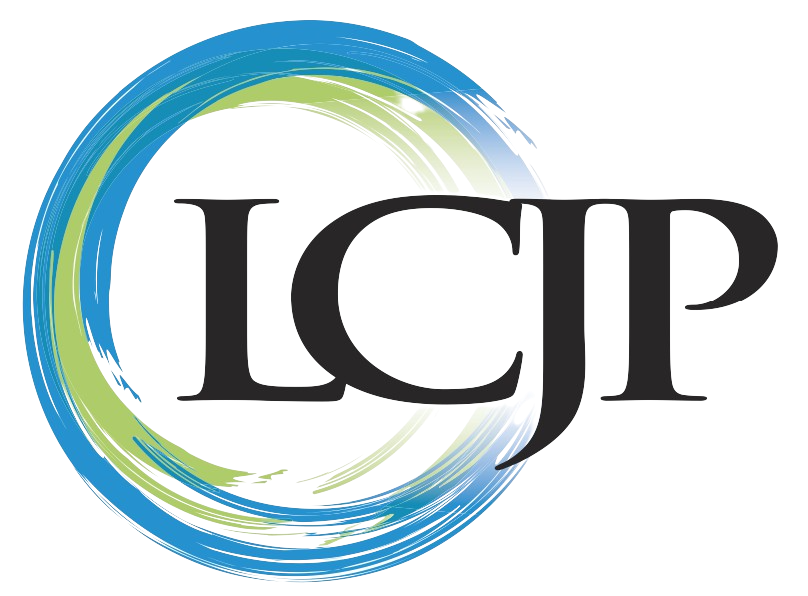Client Testimonials
Stories about the Transformative Impact of Restorative Justice
Harmed Parties Feel Repair
Quotes from Anton dworak’s Interview on LCJP’s Documentary “LCJP: Transforming Our Approach to Justice”
“I remember the morning of, ‘I told my wife I don’t want to go to this, I just want this over, I wish I could just skip it.’ I was uncomfortable being near [the responsible persons] and hearing them at first, and being in this big room with a bunch of people.
As far as the reaction when [the responsible persons] learned I was an actual victim. I think the word is ashen. I mean, you could see the blood drain from their faces. And their body language just curved back in.
[The responsible persons] felt really bad about this. They couldn’t have faked it. Their body language didn’t suggest they felt this was wasting their day or just one more thing they had to do, or as if they were forced to be there because their dad made them do it. You could tell that they felt bad about it.
The first part of the day was them explaining and expressing their remorse and their guilt. They were more measured and looking down and not making as much eye contact. As we worked through the process and talked more and more, it sounds strange, but it was more of a collaboration, it was more of a discussion about what are the next steps and things like that. It was much more of an engaging procedure as the day went on.
I feel strongly and the cemetery staff feels strongly that we did not let the community down. This was the right way to do this. “
-Anton Dworak, about his experience participating in RJ as a harmed Party
Responsible Persons Feel Respected Through Accountability
an interview with a responsible person who completed restorative justice for assault
“I would describe it as very healing. The whole process was healing for me. I went from feeling like there was no way to come back from what I had done, to feeling like I had the support to come back from what I had done better.
A lot of the negativity for me [before the conference] was how much guilt I was carrying. When the community members were brought in, it gave a third-party point of view. No sides were taken. They offered a way for me to bring healing without feeling guilty- take this negative situation and turn it into a positive.
I felt very respected, more than I could have ever imagined. People let me tell my side of the story. My life, my job, was all taken into account. I felt respected and I felt the other people involved were respected. The contract items were very meaningful. I want as many people as possible to know about this program.”
— Responsible Person
Longmont Police Believe in the Power of Restorative Justice
"I told (Responsible Person) and (Parent) that police officers are not just interested in catching the bad guys and arresting people. Our job is also to get people to change their behavior. I said there are many tools at our disposal that help us do that which include verbal warnings, written warnings, tickets, arrests, and restorative justice. I told (Responsible Person) that I believed the most effective tool we had in cases like this is to refer people to restorative justice because it gives the (Responsible Persons) the opportunity to see how their behavior affects other people."
— Officer Chrystie Wheeler
“Prior to my employment with the LPD, I was a supervisor at a much smaller, rural law enforcement agency for several years. I wish all communities could have a resource as impactful as the LCJP process.
Through the course of participating in several referrals, “circles” or conferences, and seeing some of the final outcomes of the contracts that resulted from these cases, I have learned from and benefitted from the cases as well. I have seen (Responsible Persons) and their families come to a new level of awareness of how their choices affected others, and have seen the LCJP process be a great asset in the police department’s community partnership efforts.”
— Officer Luke Wiley
“This program not only repairs the harm between offender and victim but I think it helps all the people involved in the circle to feel like they made a positive difference in their community. I want to be part of this effect and this change.”
— Officer Toby Plucinski
The Longmont Community Supports Restorative Justice.
Quote from Op-ed published by the Longmont Times Call on November 26, 2018
“I have participated in these conferences representing our community and can verify to you they are life-changing. … It is not easy to face someone you have harmed and apologize. Yet the reward is to have that person look you straight in the eye and say I accept your apology and forgive you. Epiphanies like this happen every day at LCJP.”
-Bill Ellis, LCJP Volunteer & donor
Quotes from Chief Butler’s Interview on LCJP’s Documentary “LCJP: Transforming Our Approach to Justice”
“What we have seen in our community, because LCJP is very much a community-based process, is that thousands of people over the years have been exposed to the process in some form or fashion. And I think I can safely say that the impact has been that they would now probably define justice a lot differently. And it wouldn’t be as punitive, it wouldn’t be as retributive. They’re beginning to see that we can find more effective solutions with other ways of doing business outside of the criminal justice system. “
Mike Butler, Longmont Public Safety Chief
“Restorative Justice is what loves looks like in public."
Dr. Cornel West






